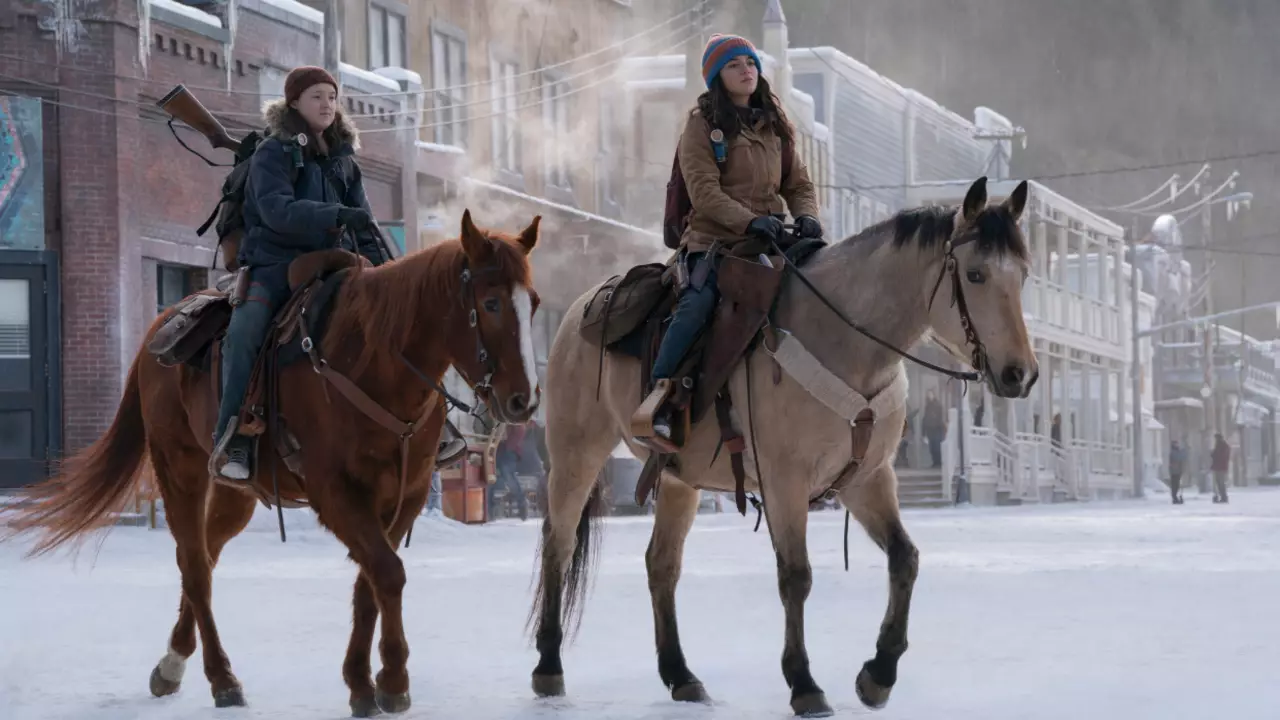As avid fans eagerly await the return of HBO’s acclaimed series **The Last of Us**, many are buzzing with excitement about the upcoming second season, set to premiere this April. The first season expertly established a rich narrative environment, spearheaded by the talented showrunners Craig Mazin and Neil Druckmann. Their approach crafted a compelling adaptation that resonated deeply with both newcomers and long-time fans of the game. As the new season approaches, audiences are rife with questions and expectations, especially in light of new revelations regarding the storytelling direction for the upcoming episodes.
One of the most significant announcements from Mazin is that Season 2 will not conform strictly to the timeline established in **The Last of Us: Part II** video game. In a recent interview, he expressed the intention behind these narrative adjustments, emphasizing the importance of creating a storyline tailored for television. He articulated that the timeline will be “messed around with” in order to enhance character arcs and reveal impactful moments that resonate with viewers. The term “messed around” carries a weighty implication that suggests a careful balancing act between innovation and fidelity to the original material.
Druckmann echoed this sentiment, cautioning audiences that revealing the exact structure of Season 2 would veer into spoiler territory. Instead, he hinted at experimentation in the storytelling process, indicating that the creative team has explored various approaches before finalizing the path they would take. This dedication to thoughtfully reimagining the storyline signifies a strong commitment to enhancing the narrative experience for television, even if it means straying from established plot points familiar to gamers.
In addition to structural changes, the showrunners have hinted at fresh character developments and introductions that will enrich the Season 2 experience. For instance, Kaitlyn Dever, who portrays Abby, has not undergone the extreme physical transformation seen in the video game. This decision speaks volumes about the show’s focus on deeper character exploration rather than strictly visual alignment with the source material. The series is set to introduce characters not present in the game, expanding upon the universe in new and exciting ways. Such inclusions create opportunities for enriched narratives while maintaining a sense of intrigue and unpredictability.
As Mazin and Druckmann navigate these new storylines, they remain aware that fans may have polarized reactions. Mazin has candidly stated that he anticipates some controversy regarding the creative choices made in Season 2. However, he emphasizes that their primary aim is storytelling integrity rather than appeasing social media critics or fan expectations. This perspective highlights a bold artistic commitment that prioritizes the narrative over potential backlash, inviting viewers to engage with the story rather than simply consume it.
The stakes are high not only for **The Last of Us** but also across the landscape of video game adaptations penetrating popular culture. With neighboring releases such as a **Minecraft Movie** and the **Until Dawn** film also scheduled for April, it is evident that the successes and failures of these adaptations will significantly impact future projects in the genre. **The Last of Us** serves as a benchmark for how to faithfully adapt a beloved yet complex narrative while asserting creative liberties that reflect contemporary storytelling techniques.
Moreover, the conversation surrounding the future of the franchise, including hints at **The Last of Us Part 3**, further amplifies the attention directed toward the series. As Druckmann and his team at Naughty Dog tease upcoming developments, there is a palpable enthusiasm for how the television adaptation could intertwine with the gaming universe, potentially creating a harmonious relationship between the two mediums.
As we stand on the brink of Season 2’s arrival, the excitement is palpable, filled with hope that the forthcoming chapters will elevate the story further. Mazin and Druckmann’s commitment to crafting a unique televised experience promises to break new ground while honoring the essence of the source material. Despite the inherent risks involved in diverging from the original storyline, the anticipation for what’s to come this April grows stronger. Ultimately, **The Last of Us** invites its audience to embark on a thrilling journey that promises unexpected twists and profound storytelling, once again intertwining the fates of its beloved characters with the viewers’ emotional investment.


Leave a Reply